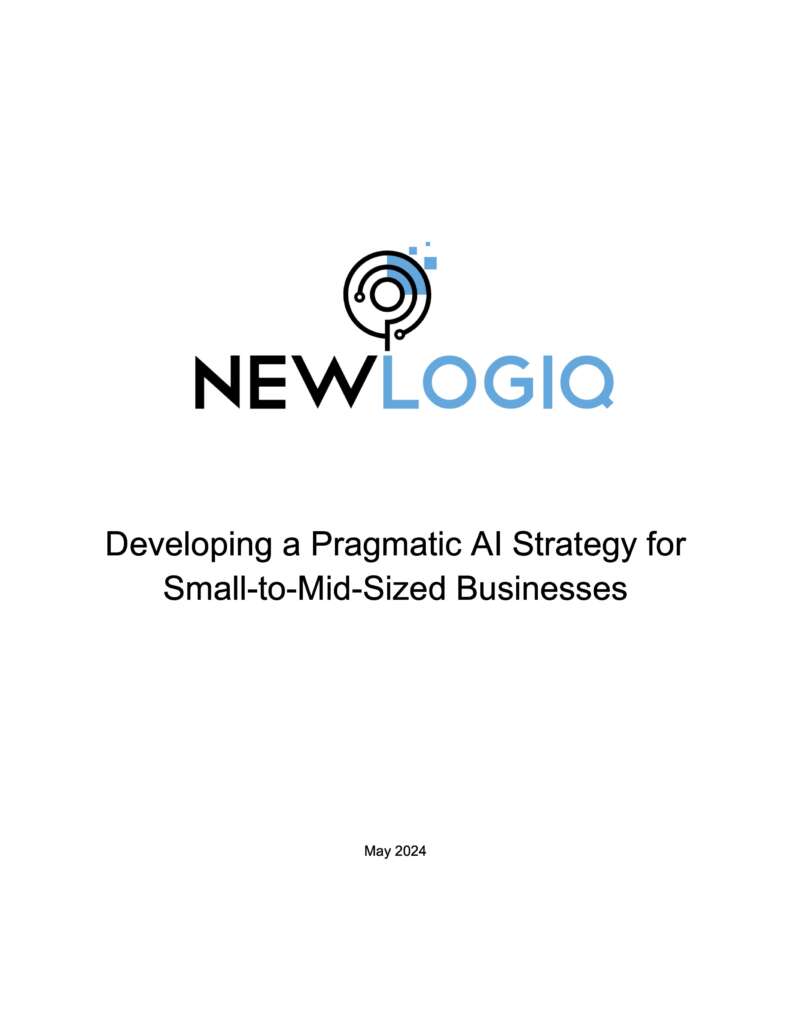Verne Harnish’s Scaling Up: Unlock Business Growth
Scaling Up is a guide for businesses wanting to grow. Written by Verne Harnish, it offers strategies and advice for entrepreneurs and leaders.
The book covers what’s needed for business growth. This includes leadership, management, and organizational structure. By using the strategies in Scaling Up, businesses can beat common challenges and reach their goals.
Good business growth strategies are key to staying ahead in today’s market. By learning from Scaling Up, businesses can reach their full growth.
Key Takeaways
- Understand the key elements necessary for successful business growth.
- Implement effective leadership and management strategies.
- Develop a robust organizational structure to support growth.
- Overcome common obstacles to achieve business goals.
- Unlock full potentia and achieve sustainable growth.
The Business Scaling Challenge
Scaling a business is tough. It needs overcoming growth barriers and using the right scaling methods. As companies grow, they face many challenges that slow them down.
Common Growth Barriers for Mid-Market Companies
Mid-market companies hit specific hurdles when they scale. These include inefficient processes, inadequate systems, and leadership gaps. These obstacles make it hard for companies to grow well.
| Barrier | Description | Impact |
|---|---|---|
| Inefficient Processes | Manual or redundant processes that slow down operations. | Reduced productivity and increased costs. |
| Inadequate Systems | Outdated technology or insufficient infrastructure. | Limited scalability and flexibility. |
| Leadership Gaps | Insufficient or unskilled leadership at various levels. | Poor decision-making and strategy execution. |
Why Traditional Growth Strategies Often Fail
Traditional growth plans often fail because they don’t fit the company’s needs. Verne Harnish’s Scaling Up methodology stresses the need for a custom approach to scaling.
The Cost of Scaling Without a Framework
Scaling without a framework can be costly. It can waste resources and miss opportunities. Using a scaling up methodology can help avoid these problems.
Who is Verne Harnish?
Verne Harnish has made a big impact in the business world. He has started many companies and helped others grow. He is known for founding the Entrepreneurs’ Organization.
Background and Entrepreneurial Journey
Verne Harnish started his first company early in his career. He faced ups and downs, but learned a lot. These experiences helped him understand how businesses can grow.
Founding of Entrepreneurs’ Organization
Verne Harnish is proud of starting the Entrepreneurs’ Organization (EO). It’s a global group for entrepreneurs. Here, they can share ideas and learn from each other.
The “Growth Guy” Legacy and Influence
People call Verne Harnish the “Growth Guy” because he knows how to make businesses bigger. His book “Scaling Up” and his consulting work have helped many companies grow.
| Aspect | Description | Impact |
|---|---|---|
| Entrepreneurial Journey | Multiple successful ventures | Shaped insights into business growth |
| Founding of EO | Global network of entrepreneurs | Pivotal platform for knowledge sharing |
| “Growth Guy” Legacy | Expertise in scaling businesses | Influence through writings and consulting |
Verne Harnish’s Scaling Up: Core Framework Overview
Verne Harnish’s Scaling Up has changed how businesses grow. It offers a detailed plan for success. This plan helps businesses grow by focusing on important areas.
Evolution from “Mastering the Rockefeller Habits”
The Scaling Up framework is an update from Harnish’s “Mastering the Rockefeller Habits.” It’s more detailed and effective for business growth. It uses lessons from many businesses and the best ways to grow.
The Four Decisions Framework
The Scaling Up method centers on the Four Decisions Framework. It highlights four key decisions for business leaders. These decisions are about people, strategy, execution, and cash.
Scaling Up vs. Scaling Out
Scaling Up means growing the business by adding more to what you do. Scaling out means growing by doing more in the same way. Both are important for business growth.
Vertical Growth Strategies
Vertical growth means adding new parts to your business. This can be getting suppliers or distributors. It helps control and improve your business.
Horizontal Expansion Approaches
Horizontal growth means getting more customers or entering new markets. You can do this through mergers, partnerships, or growing on your own. It increases your revenue and customer base.
| Growth Strategy | Description | Benefits |
|---|---|---|
| Vertical Integration | Expanding along the value chain | Increased control, improved efficiency |
| Horizontal Expansion | Increasing market share or entering new markets | Increased revenue, diversified customer base |
The People Component
In Verne Harnish’s Scaling Up framework, the people component is key for lasting business growth. It focuses on creating a strong organizational structure. This structure supports the company’s growth plans.
Building a Winning Team Structure
A solid team structure is essential for any successful business. Harnish stresses the need for clear roles and responsibilities. This prevents confusion and overlapping work.
- Defining clear job descriptions
- Establishing a chain of command
- Ensuring the right people are in the right positions
The Function Accountability Chart (FACe)
The Function Accountability Chart (FACe) clarifies and visualizes the organizational structure. It helps in:
- Identifying key functions within the organization
- Assigning accountability for each function
- Ensuring that all necessary tasks are covered
Developing Leadership at All Levels
Developing leadership across the organization is vital for scalability. This involves:
Accountability Systems
Implementing systems that hold individuals accountable for their tasks and performance. This includes regular check-ins and feedback loops.
Talent Attraction and Retention
Strategies to attract and retain top talent are key. This includes creating a positive company culture, competitive compensation, and growth opportunities.
By focusing on the people component, businesses can lay a strong foundation for scaling. It’s not just about hiring the right people. It’s also about developing their skills and aligning them with the company’s goals.
The Strategy Element
Verne Harnish’s Scaling Up framework puts business strategy at its core. A solid strategy is key for scaling and lasting growth.
Defining Your Core Values and Purpose
At the heart of a good strategy are your core values and purpose. Core values guide decisions and actions in your company. They help build a strong culture. The purpose or mission statement gives your team direction and motivation. It tells them why you’re here and what you’re trying to achieve.
The One-Page Strategic Plan (OPSP)
The One-Page Strategic Plan (OPSP) is a simple document that outlines your strategy. It includes your core values, purpose, goals, and priorities. This plan keeps everyone in your organization on the same page with your goals.
7 Strata of Strategy Implementation
Verne Harnish breaks down strategy into seven layers:
- Core Values
- Purpose (Why)
- BHAG (Big Hairy Audacious Goal)
- Brand Promise
- 3-4 Critical Goals
- Core Customer
- Brand Identity
Market-Facing Activities
Understanding customer needs and competitors is key. Developing a unique value proposition is also important. These steps help you stand out in the market.
Internal Capabilities Development
Building the skills and systems you need is vital. This includes hiring the right people, training, and investing in technology. It’s all about improving how you operate.
By focusing on these areas, businesses can build a strong growth framework, as shown in Scaling Up.
The Execution Framework
Verne Harnish’s Scaling Up focuses on a key part: the execution framework. It’s designed to help businesses grow. This framework makes sure strategies are put into action and goals are reached through a clear plan.
Establishing Effective Meeting Rhythms
Setting up good meeting rhythms is a big part of this framework. Regular meetings keep everyone on the same page. Verne Harnish stresses the need for regular talks to prevent confusion and keep everyone focused on the same goals.
Priority Management and Rockefeller Habits
Managing priorities is also key, with Rockefeller Habits being a big help. These habits help sort out what’s most important to do first. By focusing on the most critical tasks, businesses can move forward faster and reach their goals more effectively.
Key Performance Indicators (KPIs)
Using Key Performance Indicators (KPIs) is vital to track progress. KPIs show how well the business is doing against its goals. By watching the right KPIs, companies can make smart choices and tweak their plans when needed.
The Power of Daily Huddles
“Daily huddles are a powerful tool for aligning teams and driving execution.”
Daily meetings are short but powerful. They help set daily goals, solve problems, and make sure everyone knows what to do. These daily huddles build a culture of responsibility and openness, helping the whole framework succeed.
By using these strategies, businesses can get better at executing plans. This leads to better performance and lasting growth.
The Cash Component
The cash component is key in Verne Harnish’s Scaling Up method. It focuses on managing cash flow well to help businesses grow.
Cash Flow Management Techniques
Managing cash flow well is essential for scaling up. This means using robust cash flow forecasting, handling accounts receivable and payable well, and keeping a good cash reserve.
- Use a cash flow forecasting system to guess future cash needs.
- Make accounts receivable better by improving billing and collection.
- Work with suppliers to get better terms for accounts payable.
The Power of Cash Acceleration Strategies
Using cash acceleration strategies can really boost a company’s cash. These include invoice financing, supply chain financing, and dynamic discounting.
Financial Literacy Across the Organization
It’s important to teach everyone in the company about managing cash. This means showing them why cash flow matters and giving them the tools and training they need.
Cash Conversion Cycle Optimization
Improving the cash conversion cycle is key for better cash flow. This means cutting down on days inventory outstanding (DIO), days sales outstanding (DSO), and days payable outstanding (DPO).
Profit per X analysis helps understand how profitable different parts of the business are. This could be profit per customer or profit per product.
- Look at profit per customer to find the most valuable ones.
- Use profit per product analysis to choose the best products.
By focusing on the cash component, businesses can manage their cash flow better, speed up cash, and teach everyone about finance. This leads to lasting growth.
Implementing the Scaling Up Process
The Scaling Up process, created by Verne Harnish, is a guide for businesses to grow sustainably. It helps companies get past common growth hurdles with a detailed framework for scaling.
Getting Started with Scaling Up
To start with Scaling Up, businesses need to grasp the four key decisions for growth: People, Strategy, Execution, and Cash. Focusing on these areas lays a strong base for scaling.
Key steps to get started include:
- Assessing the current state of the business
- Defining core values and purpose
- Establishing a clear strategic plan
Common Implementation Challenges
Businesses often face hurdles when starting Scaling Up, like resistance to change and team alignment issues. It’s key to clearly share the benefits of Scaling Up to overcome these.
“The biggest challenge in implementing Scaling Up is not the framework itself, but the cultural shift needed to make it work.” – Verne Harnish
Measuring Implementation Success
To gauge Scaling Up success, track KPIs for the four decision areas. Regularly reviewing these metrics ensures the company is meeting its growth targets.
90-Day Implementation Plan
A 90-day plan is vital for smoothly integrating Scaling Up into a business. It outlines specific actions and milestones for the first three months.
| Week | Action Items | Responsible Team |
|---|---|---|
| 1-2 | Assess current state, define core values | Leadership Team |
| 3-6 | Develop strategic plan, establish KPIs | Strategy Team |
| 7-12 | Implement execution framework, monitor cash flow | Execution Team |
Technology Tools for Scaling Up
Technology tools, like project management software and financial planning tools, support Scaling Up. They make processes smoother and more efficient.
Scaling Up vs. Other Business Growth Methodologies
Many methods have been created to help businesses grow. ‘Scaling Up’ is one of the most well-known. It’s important to know how different methods work when scaling a business.
Comparison with Traction/EOS
‘Scaling Up’ and Traction/EOS share some key points. Both stress the need for a clear vision, core values, and goals. But ‘Scaling Up’ offers a broader framework. It includes People, Strategy, Execution, and Cash.
Scaling Up vs. Lean Startup
Lean Startup is all about quick changes and listening to customers. ‘Scaling Up’ looks at the whole picture. It covers strategy, planning, and money management. This makes ‘Scaling Up’ better for balanced growth.
When to Choose the Scaling Up Approach
Choose ‘Scaling Up’ for a detailed growth plan. It’s great for mid-market companies. They need a solid base for lasting growth.
| Methodology | Key Focus | Suitable For |
|---|---|---|
| Scaling Up | Holistic growth framework | Mid-market companies |
| Traction/EOS | Clear vision and measurable goals | Businesses seeking simplicity |
| Lean Startup | Rapid iteration and customer feedback | Startups and innovative ventures |

Conclusion: Leveraging Verne Harnish’s Scaling Up for Sustainable Growth
Verne Harnish’s Scaling Up offers a detailed plan for businesses to grow sustainably. It focuses on four key areas: People, Strategy, Execution, and Cash. This helps companies overcome growth hurdles and succeed in the long run.
The Scaling Up framework gives a clear path to business growth. It helps companies build a strong team, set a clear strategy, execute well, and manage cash flow. By using Verne Harnish’s strategies, businesses can innovate, work more efficiently, and make more money.
To grow sustainably, businesses need to follow Scaling Up’s key principles. This creates a strong base for lasting success and keeps them competitive in today’s fast business world. Verne Harnish’s Scaling Up is a key resource for businesses aiming to grow and scale sustainably.
FAQ
What is Verne Harnish’s Scaling Up methodology?
Verne Harnish’s Scaling Up is a way to grow a business. It focuses on four main areas: People, Strategy, Execution, and Cash. It aims to help businesses grow in a sustainable way.
How does Scaling Up differ from other business growth methodologies like Traction/EOS?
Scaling Up and Traction/EOS both aim to help businesses grow. But Scaling Up is more detailed. It covers People, Strategy, Execution, and Cash. Traction/EOS focuses more on the Entrepreneurial Operating System.
What is the Four Decisions Framework in Scaling Up?
The Four Decisions Framework is a key part of Scaling Up. It involves making decisions in four areas: People, Strategy, Execution, and Cash. This framework helps businesses make important decisions for growth.
How can businesses implement the Scaling Up process?
Businesses can start by checking where they are now and what needs work. Then, they can make a 90-day plan. They can use tools like the One-Page Strategic Plan (OPSP) and the Function Accountability Chart (FACe).
What is the role of the One-Page Strategic Plan (OPSP) in Scaling Up?
The OPSP is a key tool in Scaling Up. It gives a clear plan for a company’s values, purpose, and goals. It helps businesses stay focused and grow.
How does Scaling Up address cash flow management?
Scaling Up focuses a lot on managing cash flow. It offers ways to improve cash flow. This includes speeding up cash, improving cash cycle, and analyzing profit per X.
What are the benefits of using the Scaling Up methodology?
Using Scaling Up can help businesses grow, work more efficiently, and make better decisions. It focuses on People, Strategy, Execution, and Cash. This leads to sustainable growth and success.
Is Scaling Up suitable for all types of businesses?
Scaling Up works for many businesses, but it’s best for mid-market companies. It helps them overcome growth challenges and grow sustainably.











